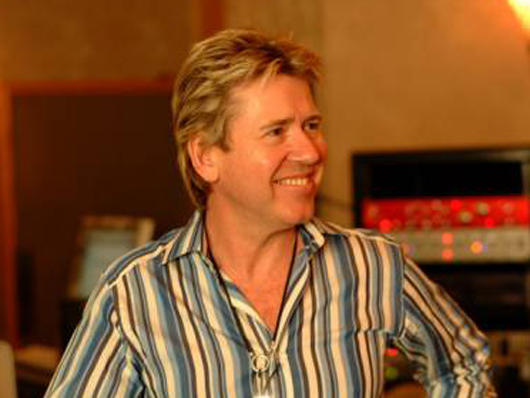
Steve Lillywhite
Steve Lillywhite told Guns N’ Roses, ‘Thanks, but no thanks.’
Of course, saying you walked away from Chinese Democracy is no biggie - dozens of music makers came and went during that album‘s 13-year gestation period - but Lillywhite turned down the chance to produce Appetite For Destruction, a record with global sales approaching 29 million. It's the kind of disc most people in his line of work would gladly give their eyeteeth to list on their CVs. Lillywhite doesn’t regret his decision for one second - for him, it all came down to Axl Rose’s voice.
“If I don’t like a singer, I’ll say no to a band,” says the genial, British-born Lillywhite. “Guns N’ Roses are a perfect example. I realize that half the world considers Axl Rose rock royalty, but to me, he’s just a bad pub singer. They made the record they wanted to make without me, so it was all for the best. You can‘t dwell on what you didn‘t do. It’s what you did do that matters.”
The results speak for themselves: over the course of a three-decade-plus career, Lillywhite’s efforts - debuts by U2 and the Dave Matthews Band, plus groundbreaking releases from XTC, Morrissey, Peter Gabriel and dozens more - have defined an era. “I’m thrilled to know that so many people have connected to this music,“ he says. “But to me, making albums is ultimately a very personal experience.”
According to Lillywhite, the art of record production functions best when it mirrors a marriage. “Bands are like families,“ he says. “Sometimes you like your family, sometimes you don’t. But at the end of the day, you have to deal with it. Basically, I’m a ‘people person,‘ so I’m very fortunate to have chosen a profession that was a good fit for me, because you have to be a ‘people person’ to do this kind of thing well. One day I’m a friend and honorary bandmate, the next day I’m a therapist and kind of a den father - no two days are the same.“
Even so, since making his first recordings, Lillywhite says that his goal has remained constant: “I want to capture greatness,” he states. “There’s never one way you achieve that, but that’s what makes this a fascinating and challenging job. Every album is a new chance to do something different and exciting.”
He thinks for a second, then adds with a laugh, “Of course, it always helps if I can tolerate your singing. If the voice is there, then we‘re halfway home!”
Read on as Steve Lillywhite talks us through 16 of the most important and memorable albums of his career. First up: Ultravox
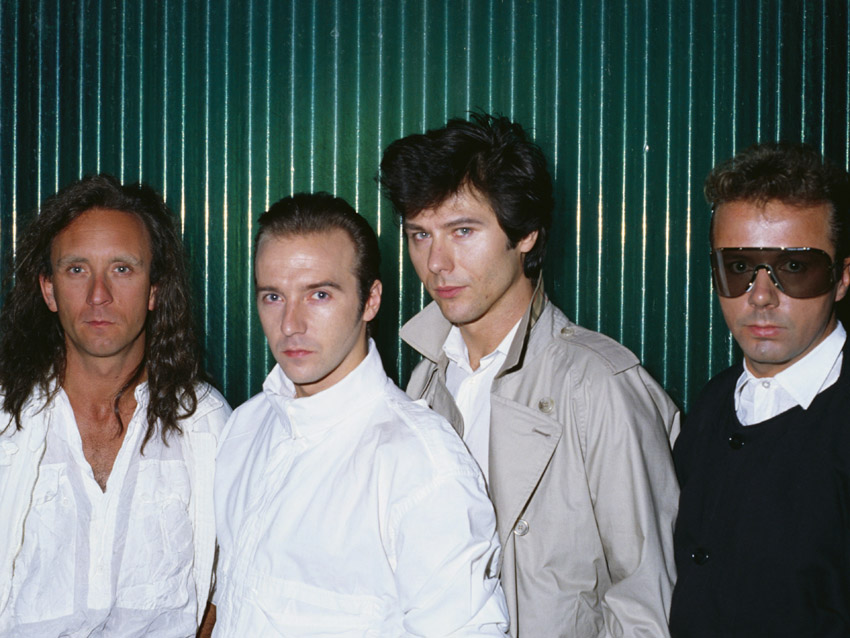
Ultravox - Ultravox!
“I was a young tape operator at a studio. Basically, a tape op is the guy who presses the buttons and things like that. In those days, you could get promoted from tape op to engineer, and one way to do that was to bring in bands on weekends to engineer on your own. If the studio boss saw you could handle things, chances were good you’d get promoted.
“So I brought in this band called Tiger Lily - they would change their name to Ultravox - and we did some demos which landed them a deal with Island Records. As luck would have it, they told the label they wanted me to produce their album.
"It wound up being a three-way production between me, the band and Brian Eno. The label said the band needed a name guy, and because they loved Roxy Music, they chose Brian. This would be my first time working with him.
“The great thing about Brian is, he comes in, does his thing and leaves - whereas I’m there all the time and micro-manage. It was a good learning experience. The album was critically acclaimed, but it didn’t have that all-important hit single. This was during the early days of punk, when attitude was everything. Ultravox came from punk, but they were more art-rock.”
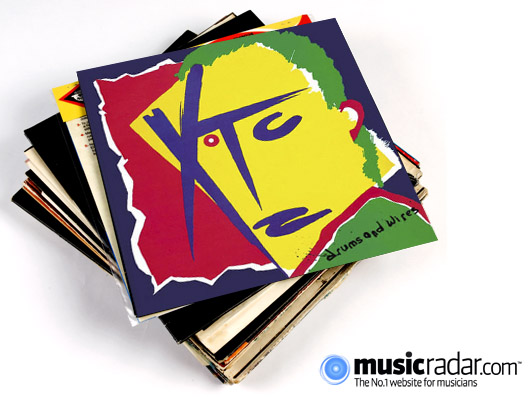
XTC - Drums And Wires
“I had a fantastic time with XTC. With some artists, I have to help work on arrangements and put a lot of things together in order to create an album. This was hardly the case with XTC.
“Andy Partridge came in with songs that were fully formed - there was no fat on them whatsoever - which made things fairly easy for me, really. More than anything, I just conceptualized the sound of the album.
“It’s a really good record, in my opinion. The song Making Plans For Nigel still sounds wonderful to me. By this point, I guess you could say I was off and running as a producer.”
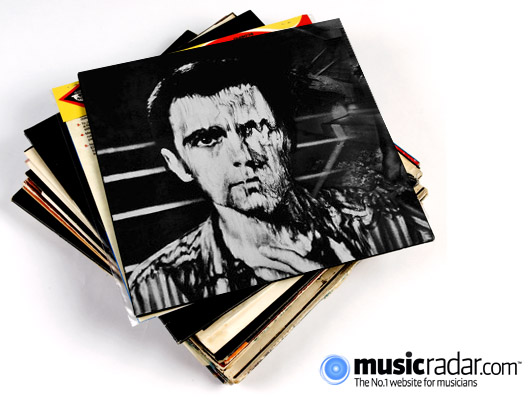
Peter Gabriel - Peter Gabriel
“Peter phoned me up, and I thought it was somebody pulling a prank on me. I didn’t believe it was Peter Gabriel on the other end of the line. But we had a meeting and got on famously.
"This was a new experience for me in that it was first time I was producing somebody who was ’before my time,’ if you will, somebody older than me and, quite frankly, an artist I was kind rebelling against. Remember, I was still coming from punk, and Genesis certainly weren’t punk at all.
“Peter surprised me in all the ideas he had. When he said, ‘I don’t want to use cymbals on the record,’ I went, ‘Ahhh! I love that.’ Because I was playing around with a lot of ambience on the drums, and cymbals were always very annoying. So we recorded without cymbals, and the result was an album with a beautifully unique sound.
“The record is very dark, but the mood in the studio was fun and joyful. Peter had loads of ideas, but he was very open to try anything. Whenever he suggested something, I’d go, ’That’s great! Now, can we go one step further?’ Which he loved. I think we both learned a lot from each other.”
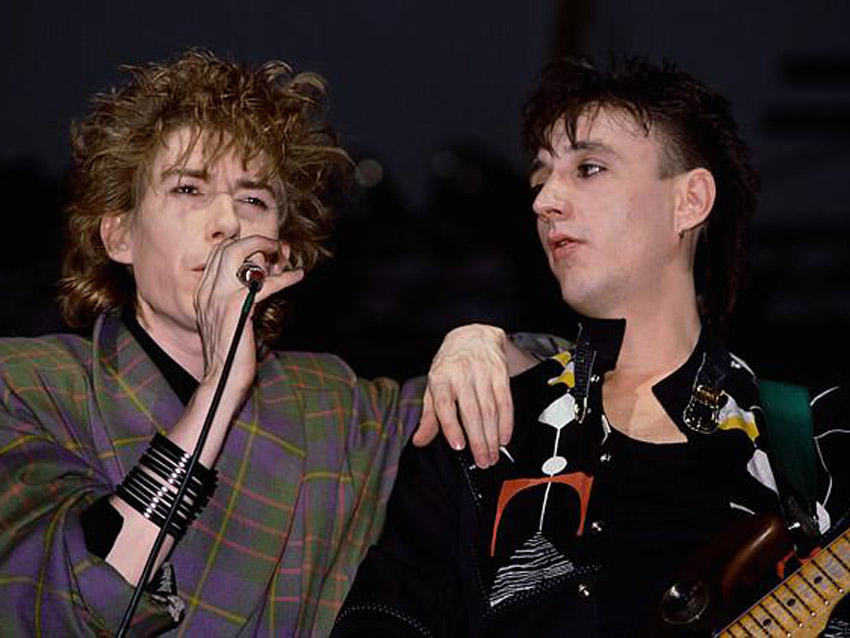
The Psychedelic Furs - The Psychedelic Furs
“One of a few times I’ve worked with brothers. With the exception of this Christian band called Switchfoot, any time I work with brothers, they always fight. Richard and Tim Butler would go to the pub, then they’d come back and be arguing about something. Other than that, they were great.
“The catchphrase in the band was ‘beautiful chaos,’ and I think we captured that on this album. There were six members in the group, and they created this big noise. My job was to take that chaos and noise and make sense of it all.
“We did the whole thing in 10 days, between Peter Gabriel sessions. Quite an adventure.”
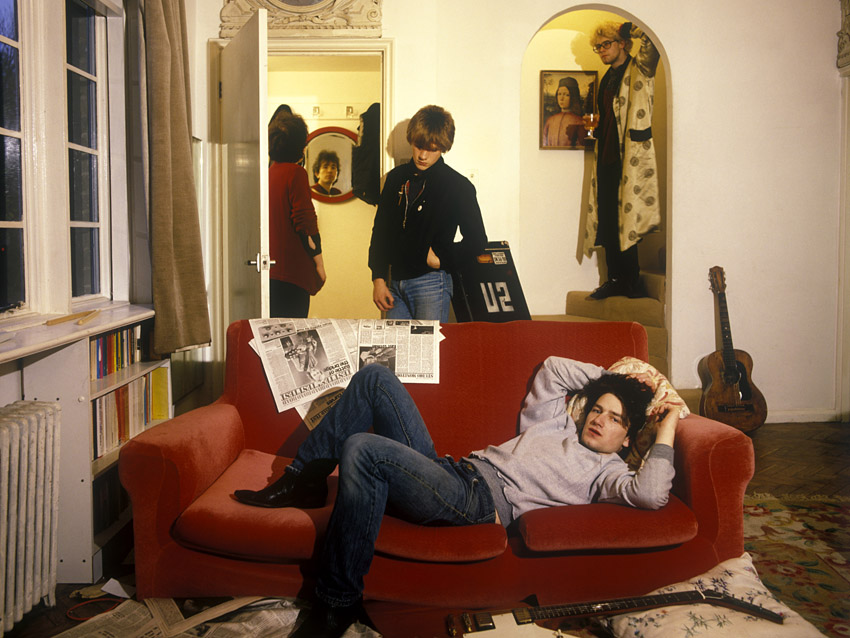
U2 - Boy
“I was their second choice for a producer. Originally, they wanted Martin Hannett, who had worked with Joy Division. But when that band’s singer, Ian Curtis, committed suicide, Martin decided he wasn’t in the right headspace to produce U2.
"So they came to me, I saw them play, and we worked on a single called Stories For Boys. They liked it a lot, so we set about recording the album.
“It’s funny to think about it now, but back then, they weren’t the band you would expect to make it - not when you stacked them against Echo & The Bunnymen or The Teardrop Explodes. They just weren’t that hip at the time.
“I did like their sound, though. More than anything, I liked their spirit: U2 didn’t think about winning, they thought about not losing. They were keenly aware of their limitations, but they wouldn’t be stopped.
“Bono’s voice struck me right away. I never thought of him as a rock singer, but rather as a crooner. To me, the band is like Frank Sinatra - if Frank Sinatra had electric guitars behind him. It’s incredible to see how The Edge has become such a guitar icon, because on that first album, he only had one guitar. [laughs] But he did quite a lot with it.”
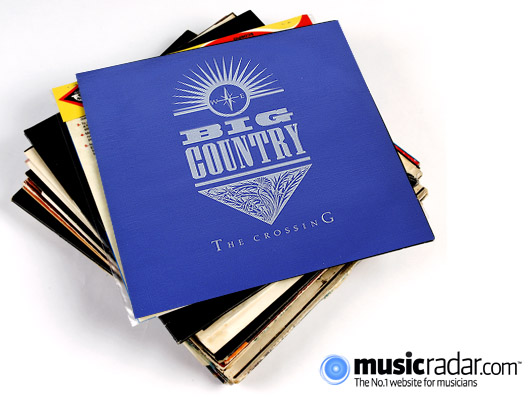
Big Country - The Crossing
“This was the beginning of the next phase. With punk, the musicianship wasn’t so good. The attitude was great, but the playing wasn’t there.
"Big Country were different: They were fantastic musicians, and a couple of the members, Mark Brzezcki and Tony Butler, knew how to play their instruments really well. Mark and Tony were already session guys - they had played with people like Pete Townshend.
“One of the reasons why I love this album, and I love my contribution to it, is that they had worked with another well-known producer, and things didn't turn out right. So they came to me and said, ’Steve, we know we’re a good band, but the sound we’re getting is boring. We’re not happy.’ So I went in and took everything apart and put it all back together. And in doing so, I helped them get that big sound they became famous for.
“The guitars sounding like bagpipes? We were totally aware of it. But it wasn’t so much because of their guitars or their gear or anything technical; it had more to do with the parts they were playing. They were very simple, striking, anthem-like lines that just rang out. I have a very special place in my heart for this album.”
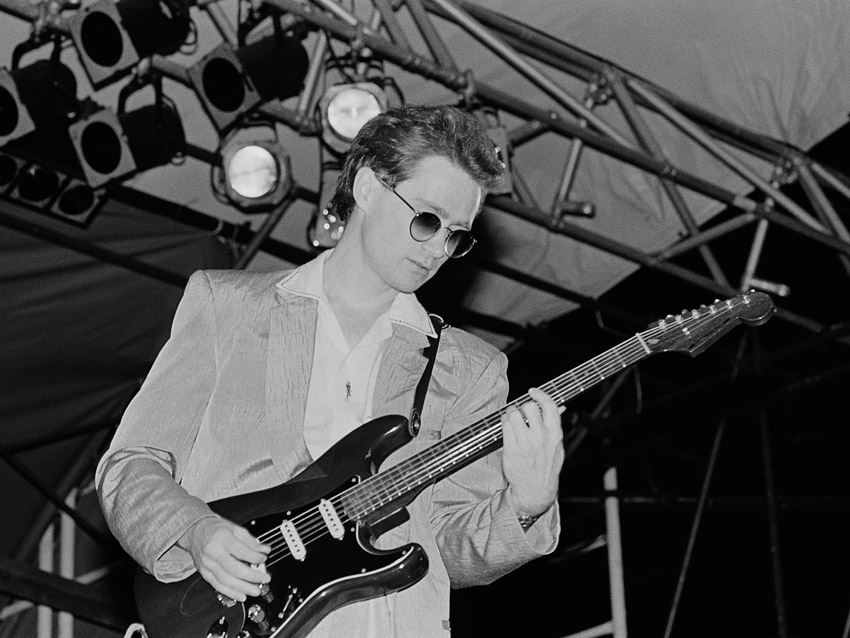
Marshall Crenshaw - Field Day
“Up to this point, I’d pretty much recorded UK-based bands, and I wanted to have success with an American act.
"Funnily enough, Marshall came to England and was your typical Anglophile musician. He went to Liverpool, did all those things. ‘Why are you going to Liverpool, of all places?’ I asked him. And he said, ’Well, that’s what you do, right? The Beatles…’ Anyway, when we decided to work together, we did it in the States, at that great studio The Power Station, which is now called Avatar.
“The Power Station had that enormous live room where Bowie did Let’s Dance and Springsteen did Born In The USA. The huge drums you got in that room sounded fantastic on those records, but they might have been too much for a Marshall Crenshaw album.
“Marshall took a lot of heat from his fans and critics for Field Day. Based on his first album, he was sort of this Great White Hope for stripped-down pop-rock. But Marshall always defended Field Day. He said it was the record he wanted to make and the sound he was looking for.”
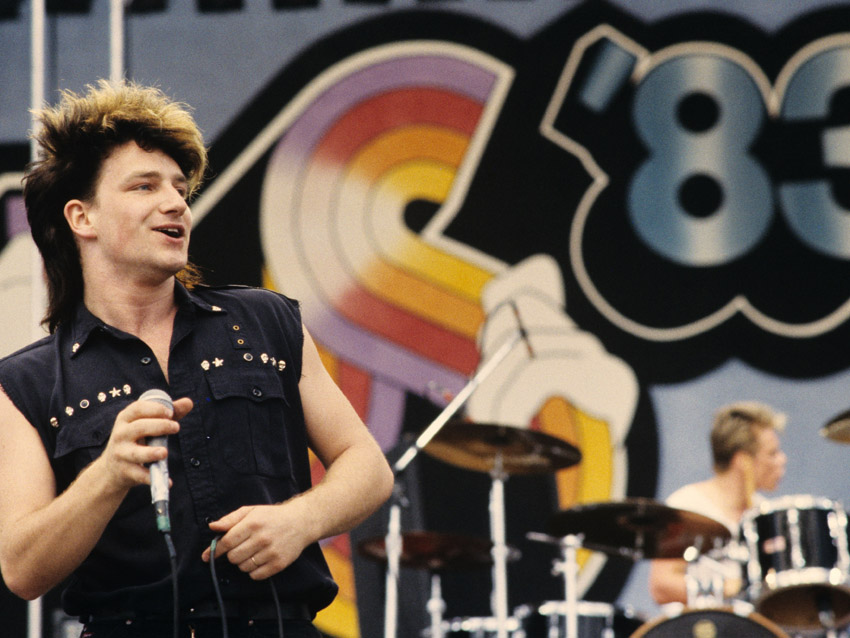
U2 - War
“I had this stupid idea at the time that I could only do one album with any band. I thought, Well, if I can produce other artists, shouldn’t bands work with other producers?
"After Boy, I told U2 they should use somebody else, which they did do - they had tried doing some stuff with Sandy Pearlman. But one day in 1982 I got a call from Bono asking me what I was doing in September. I still get those calls, in fact!
“With October, they didn’t know what kind of record they needed to make. With War, however, they knew exactly what they were aiming for, lyrically and sonically. They were going for art, but in a very primal way. XTC were art from the head, whereas U2 were more art from the heart.
“One of the biggest things the band wanted to accomplish on War was to have an album that captured the power of their stage show. I remember Bono saying to The Edge over and over again, ’No, no, don’t play like The Edge! Play like Mick Jones from The Clash.’”
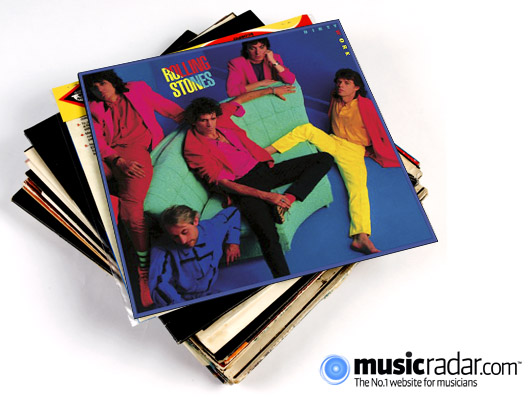
The Rolling Stones - Dirty Work
“A real man would never turn down The Rolling Stones - that’s how I looked at it. But I did realise very early on that this would not be a classic Stones album. This was going to be a strange and difficult record.
“Mick had just released his first solo album, She’s The Boss, which became affectionately known to Keith and his gang as ’that fucking disco album.’ Keith was very annoyed at Mick for making that record. To him, loyalty is everything, and he saw Mick going outside the band as no different from seeing your wife cheating on you.
“Mick and Keith were hardly in the same room together - the tension was pretty thick. So I kind of saw my role as being the Henry Kissinger for the guys, keeping the peace. The album had some OK tracks on it: Harlem Shuffle is cool… One Hit To The Body is half-cool. Still, it was the worst Stones record they had made up till then. On the other hand, every subsequent record has been worse, so I don’t feel that bad.” [laughs]
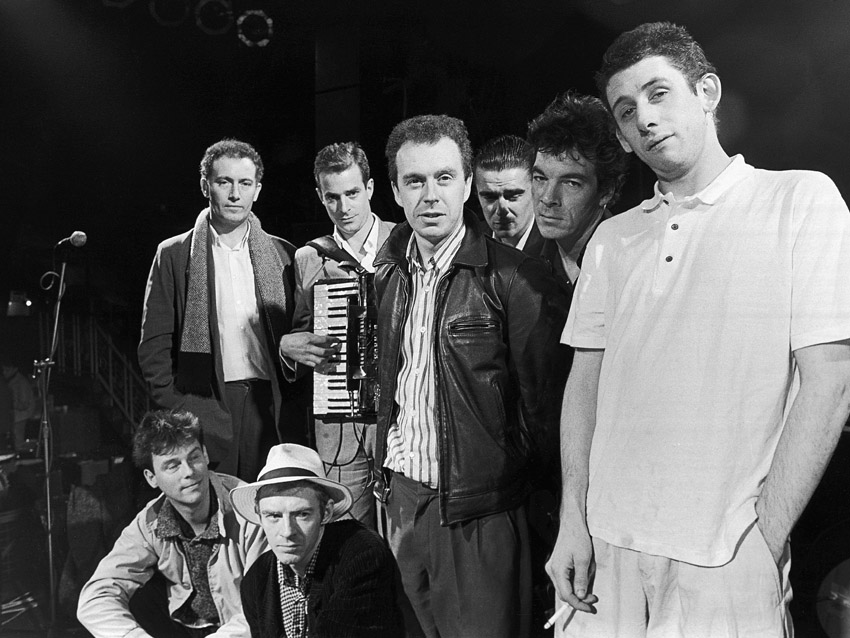
The Pogues - If I Should Fall From Grace With God
“This is the album that just keeps on going. The other day, I saw a Subaru commercial on American television that used the title track. Couple that with the fact that Fairytale Of New York is now the biggest Christmas song in the history of the UK. Plus, my wife at the time, Kirsty MacColl, sang the duet on Fairytale, and she was killed at Christmas… So the record is very significant in my life.
“Making the album was another exercise in chaos, but as it was with the Furs, it was an enjoyable chaos. We had something like seven or eight people playing together, this incredible cacophony. My job was to keep my eye on the ball at all times. At the end, I remember Spider [Stacy] coming up to me and saying, ’I don’t know how you did it, but this is a great record!’
“They were a crazy band, but once I got used to their craziness I was fine. For example, I learned not to get Shane MacGowan to do a vocal at the end of the day; I got him to do a vocal at the beginning of the day. The only thing was, his day didn’t begin until nine o’clock at night!” [laughs]
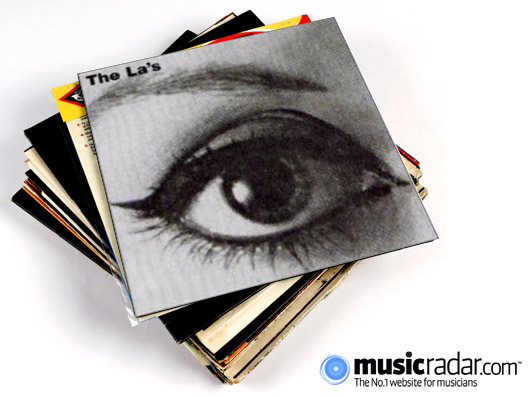
The La's - The La's
“You’d listen to this record and think that we all had a giant party in the studio. Strangely enough, it wasn’t such an enjoyable album to make.
“I knew the songs were absolute diamonds, but getting them on tape wasn’t so easy. Lee Mavers [the group’s singer-songwriter] had this blueprint in his head for the record, but it was like an acid trip that kept coming back to him, and it would mess him up.
“We’d record six songs that were fantastic, but if there was one thing wrong on the seventh song, he’d become convinced that everything else was terrible, and we’d have to start everything all over again. There’s nothing wrong with seeing as an album as an artistic whole rather than a collection of songs, but when that view is to the detriment of getting things done…well, it can be a problem.
“That said, I would put Lee right up there with any of the singer-songwriters I’ve ever worked with. He‘s an amazing talent, and the album we made is sort of timeless.”
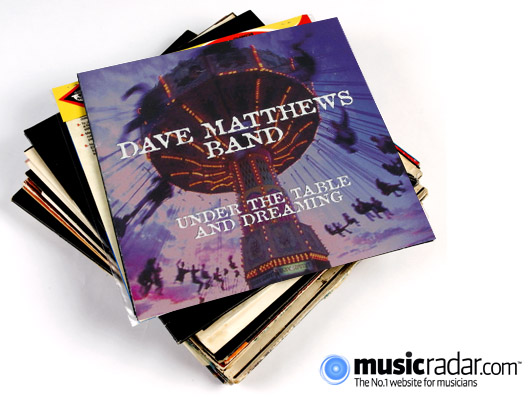
Dave Matthews Band - Under The Table And Dreaming
“The band got a record deal and spoke to a lot of my contemporaries about producing their debut. I talked to a few of the guys who were being considered, and they said things like, ‘They’ll never be successful. There’s a jazz drummer, a violin player, they play drum solos and there’s an acoustic guitar - who wants to hear that?’
“I never saw any of those elements as negatives. I went to see the band play live, and I was very impressed by the buzz they were generating. I thought they had very strong material, a great singer - Dave can sing in a lot of registers; he‘s sort of like Peter Gabriel in that way. My attitude was, There’s nothing here for me to change. All I really have to do is take what they’ve got and accentuate it.
“The band made the record they wanted to make, and in my opinion, that’s usually when you come up with something really special. The bottom line is, there’s incredible songs on the album, things like Satellite - I mean, c’mon, that’s a great fucking song!
“This was my first time recording up in Woodstock, New York, and I fell in love with the non-corporate environment of music that exists there. A really fabulous place.”
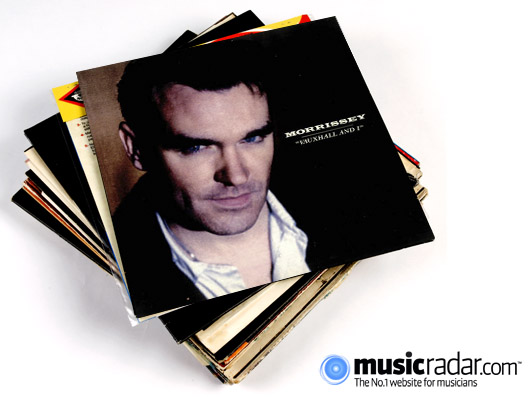
Morrissey - Vauxhaul And I
“Morrissey! God bless him. I’ve did three albums with him, but this one was definitely the best.
"I think one of the reasons why Morrissey and I worked together on a number of records was because he really liked my production of his voice. I took a lot of time recording his vocals, which was very important to him because he loves listening to himself!
“I don’t know what I did differently from other producers. To me, I was simply focusing on what one should - a unique singer.
“Morrissey is one of those guys who says very little, but when he does it means something. I remember one day we were working on a track, and he was out of the room for a while, down the hall or whatever. He came back in, listened to the song and simply said, ’Steve…The Who, Shepherd’s Bush, 1964.’ And he walked out. All at once, I went, ‘Ahh! Now I know what to do!’ [laughs] He’s that kind of fellow. You have to know how to read him.”
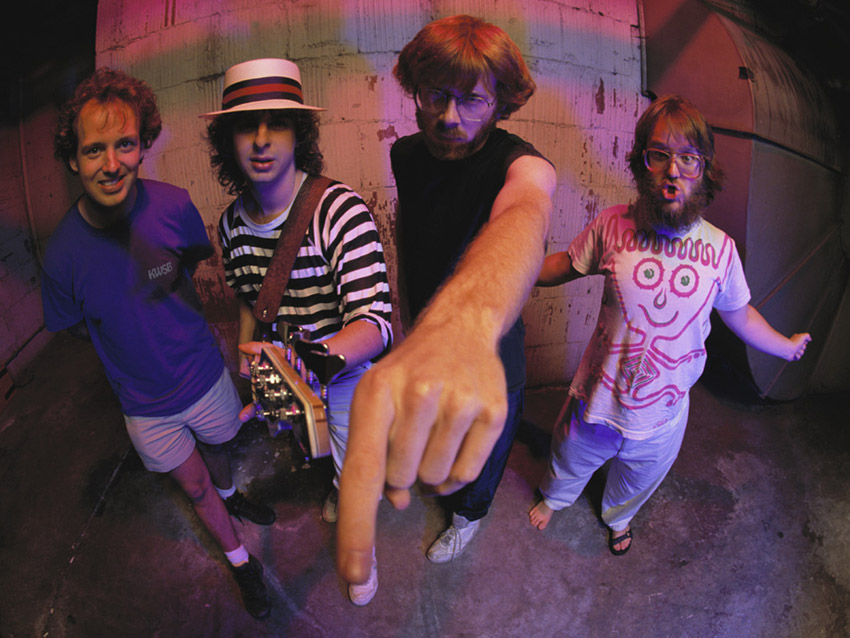
Phish - Billy Breathes
“All of a sudden, this punk rocker is deemed the man who does prog-rock - or jam bands, if you will. What a U-turn! But you know, I love all art forms, the exception being opera. Opera I probably wouldn’t be very good at.
“Phish, for me, are the musical equivalent of watching a flock of birds fly across the sky: They don’t scatter every which way, but rather, they move with each other; they dip and dive, they go up and down; but at all times, they seem to have this radar, this instinct, for where the bird in front or in back of them is going. Musically, each member of Phish knows what the other is doing, which then carries over to the whole.
“The band can play anything, which then raises the question: Well, what should they play? With Billy Breathes, it’s the closest they got to making what I would say is a good stoner album.
"You know what I mean: you put on the CD, you fire up a big one and you just go down that road. There hadn’t been a good stoner record since Dark Side Of The Moon. Billy Breathes got close. I keep telling Trey Anastasio we can make a better one.”
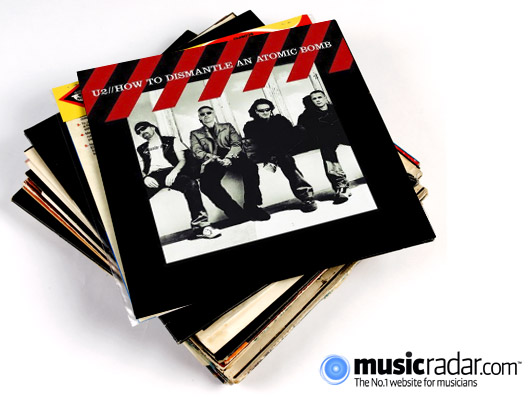
U2 - How To Dismantle An Atomic Bomb
“I’ve had different jobs with U2 since the first three albums. I remember on The Joshua Tree, they were 18 months into making that record when Paul McGuinness, their manager, finally said to them, ’When you recorded with Steve, you’d do a record in six weeks. Let’s get him in here and finish this thing.’
“My role with U2 gradually became being something akin to the closing pitcher - the guy who comes in at the end and helps win the ball game. I think a lot that has to do with the fact that when the band sees me, it reminds them of their early work and they know they have to get down to in. On Joshua Tree, Achtung Baby, All That You Can’t Leave Behind - they would always call me to wrap things up, and sometimes to work on the hits.
“During much of this time they were working with Brian Eno and Daniel Lanois, but on Atomic Bomb they started the sessions with another producer. Eighteen months into it, they decided they had to fire the producer and start all over. The band was feeling pretty down about things.
“I came in and listened to what they had done. They played me a song called Native Son. I liked it, but I said it wasn’t right, it hadn’t been recorded correctly. So I set the band up in a whole different way, they started playing, and halfway into it Bono said, ’I can’t sing this song. The words aren’t good enough.’ And I said, ’Well, the music’s pretty good.’ So he went off, wrote different lyrics, and the song became Vertigo. At that point, after we had Vertigo, we took our feet off the brakes and the album progressed at a nice pace.
“Musically, the band still struggles, but they’re overachievers - if they can’t do something, they’ll hammer away at it until they can. They want to do their best work, even today. Complacency never took root in U2. They want to make great albums, and they want to have hits. More than anything, they want their music to mean something to people. I can’t say enough good things about them.”
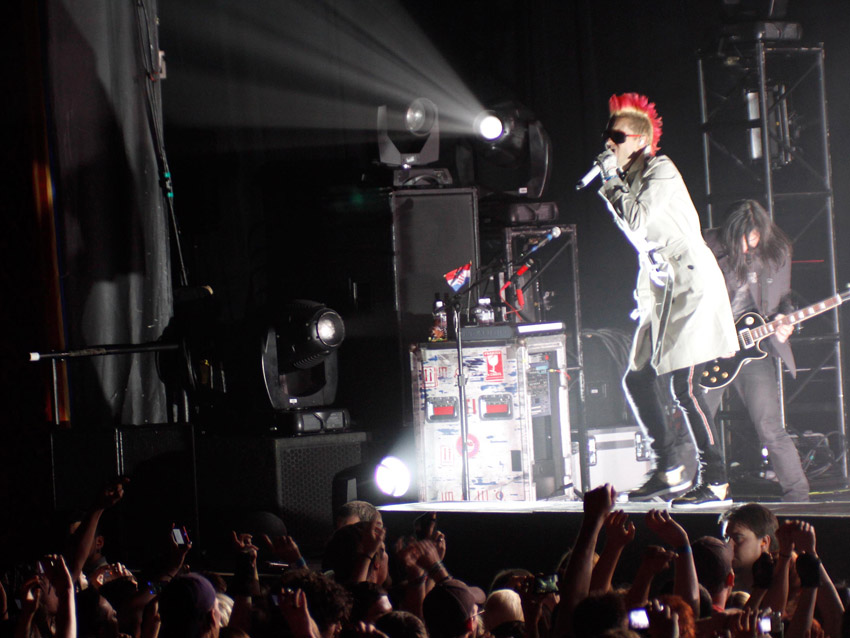
Thirty Seconds To Mars - This is War
“The fabulous Leto brothers, Jared and Shannon. I really enjoyed this project. What happened was, Flood started the album, but things were going kind of slowly, so Flood had to leave and I came in.
“We were recording at the Leto brothers‘ house, which certainly had its advantages and disadvantages. On the plus side of things, it’s a cheap way to make a record; on the negative side, there’s not much of a clock.
“The album is pretty gargantuan. It’s funny, though: The whole idea of getting the fans to sing on it and be the choir, well, that’s great and all, but the only problem is that most of the fans are women. We’d record them, listen back, and it sounded like a load of kids! [laughs] So we had to bolster it up with some guys’ voices, all of us singing, just to put some weight on top of the choir.
“They’re a great band. I think Jared is really talented, and I’d love to get some more stuff going on with him. You sit him down with an acoustic guitar and listen to him…he’s spectacular.”
Liked this? Now Read: Studios of the pros: stars' recording setups in pictures
Connect with MusicRadar: via Twitter, Facebook and YouTube
Get MusicRadar straight to your inbox: Sign up for the free weekly newsletter
Joe is a freelance journalist who has, over the past few decades, interviewed hundreds of guitarists for Guitar World, Guitar Player, MusicRadar and Classic Rock. He is also a former editor of Guitar World, contributing writer for Guitar Aficionado and VP of A&R for Island Records. He’s an enthusiastic guitarist, but he’s nowhere near the likes of the people he interviews. Surprisingly, his skills are more suited to the drums. If you need a drummer for your Beatles tribute band, look him up.
